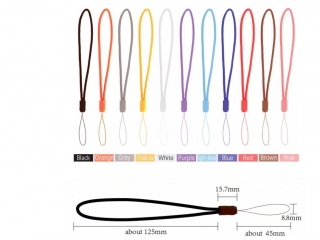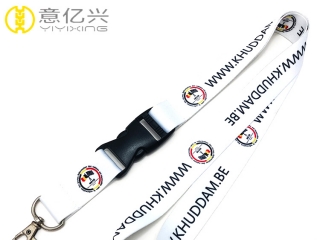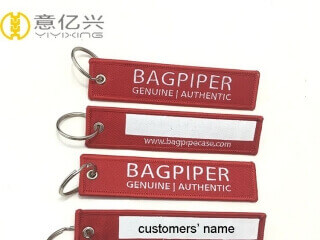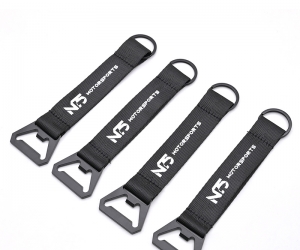What lasts longer nylon or polyester?
When it comes to synthetic fabrics, nylon and polyester are two of the most commonly used materials in the world. Both of these fabrics have their own unique properties and advantages, but when it comes to durability and longevity, nylon is often the better choice. In this article, we will explore why nylon lasts longer than polyester.
Durability
One of the main reasons why nylon lasts longer than polyester is its durability. Nylon is a strong and resilient fabric that can withstand a lot of wear and tear without losing its shape or strength. This makes it an ideal choice for use in outdoor gear, such as backpacks, tents, and sleeping bags, as well as in sports equipment like parachutes and climbing ropes. Nylon fibers are also highly resistant to abrasion and tearing, making them ideal for use in heavy-duty applications like industrial fabrics and military gear.
Polyester, on the other hand, is not as durable as nylon. While it is still a strong fabric, it is more prone to stretching and losing its shape over time. This makes it less suitable for heavy-duty applications and outdoor gear. Polyester fibers can also weaken and break down over time when exposed to sunlight and other environmental factors.

Strength
Another reason why nylon lasts longer than polyester is its strength. Nylon fibers are stronger than polyester fibers, which makes them more resistant to breaking and snapping. This is particularly important in applications where strength and reliability are critical, such as in heavy-duty industrial fabrics, military gear, and safety equipment.
Polyester fibers are not as strong as nylon fibers, which makes them less suitable for use in applications that require high levels of strength and durability. Polyester fibers can also weaken and break down over time when exposed to water and other environmental factors.
Moisture Absorption
Nylon is a hydrophobic fabric, which means that it repels water and does not absorb moisture. This makes it an ideal choice for use in outdoor gear and clothing, as it will not become waterlogged and heavy when exposed to rain or other moisture. Nylon is also highly resistant to mold, mildew, and other forms of bacterial growth, which makes it a good choice for use in humid environments.
Polyester, on the other hand, is a hydrophilic fabric, which means that it absorbs moisture. While this can make polyester more comfortable to wear in hot and humid conditions, it also means that it is more prone to becoming waterlogged and heavy when exposed to moisture. Polyester is also more susceptible to mold and mildew growth than nylon, which can make it less suitable for use in humid environments.
Environmental Impact
While both nylon and polyester are synthetic fabrics, nylon is generally considered to be more environmentally friendly than polyester. Nylon is made from a renewable resource, as it is derived from petroleum, which is a non-renewable resource. Nylon is also more easily recyclable than polyester, as it can be melted down and reformed into new fibers.
Polyester, on the other hand, is made from a non-renewable resource and is more difficult to recycle than nylon. Polyester fibers are also more prone to shedding microfibers, which can contribute to environmental pollution. This means that nylon is a better choice for those who are concerned about the environmental impact of their clothing and gear.
Conclusion
In conclusion, while both nylon and polyester have their own unique properties and advantages, nylon is often the better choice when it comes to durability and longevity. Nylon is a strong and resilient fabric that can withstand a lot of wear and tear without losing its shape or strength, and it is highly resistant to abrasion and tearing. Nylon is also a highly versatile fabric that can be used in a wide range of applications, from lightweight clothing to heavy-duty industrial fabrics. Additionally, nylon is more environmentally friendly than polyester, as it is made from a renewable resource and is more easily recyclable. When it comes to choosing between nylon and polyester, those who prioritize durability and longevity should opt for nylon.
-
 Such a beautiful keychain makes people love and hate!
Such a beautiful keychain makes people love and hate!If you are a designer, then lines like "Tune a little bit here", "Help me change t...
Do you like ?0
Read more -
 Easy to carry Water Bottle Lanyards buying
Easy to carry Water Bottle Lanyards buying -
 Advantages of using personalized printed Silicone Wristbands
Advantages of using personalized printed Silicone Wristbands -
 The difference between nylon lanyard vs polyester lanyard - Yiyixing
The difference between nylon lanyard vs polyester lanyard - YiyixingWhat is Polyester Made Lanyards?
When it comes to <...
Do you like ?0
Read more -
 Does Wear Cute lanyard can keep in a good mood?
Does Wear Cute lanyard can keep in a good mood?With the growth of age, girls are more and more inclined to adorabl...
Do you like ?0
Read more -
 Why not choosing custom flight tags as a gift?
Why not choosing custom flight tags as a gift?Fabric key tag, made by embroidery or woven is one of our new appli...
Do you like ?0
Read more





